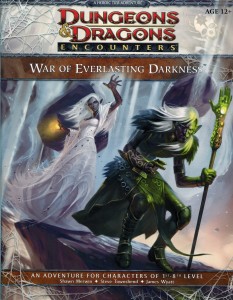While the Dungeon’s Master team enjoys some well-deserved vacation time, we’re breaking out the greatest hits and shining a spotlight on a few of our favourite articles from 2012. We’ve searched for hidden gems that our newer readers might have missed and our long-time readers will enjoy reading again. Enjoy a second look at these greatest hits from Dungeon’s Master.
Nothing makes me happier than hearing a player say that his PC wants to try and talk their way out of a fight. I try to encourage my players to have their PCs pursue options for resolving conflict that don’t involve combat, but it’s usually a hard sell since they want to fight monsters. When someone actually thinks talking is a better option I will go out of my way to let them have their say before the swords start swinging and the arrows start flying.
In order for the new initiative I’ve proposed to be successful the DM needs to remember the importance of saying yes. Sure it normally takes a standard action to get a bloodied opponent to surrender, but if you’re going to allow for a talking initiative then you need to be flexible enough to allow an Intimidate check done at the beginning of combat as a free action to have a similar effect. If the DM rewards creativity and demonstrates that he’s willing to bend the rules to let something cool and interesting happen, more players will try acting during the talking phase of initiative.
A good DM will let the role-playing and a solid skill check lead to results that the PCs are not used to seeing. These results can vary from an all out surrender to delaying combat for a few rounds. Different skills should result in different outcomes as well. Bluff can be used to distract or misdirect, Diplomacy to negotiate surrender or non-aggression, and Intimidate to command into submission or scare enemies away. Words can be powerful and when delivered at the right time and in the right way PCs will see that a Diplomacy check can yield better results than all of their daily and encounter powers combined.
From September 17, 2012, Dungeon’s Master once again presents: The New Initiative – Talk then Fight.

